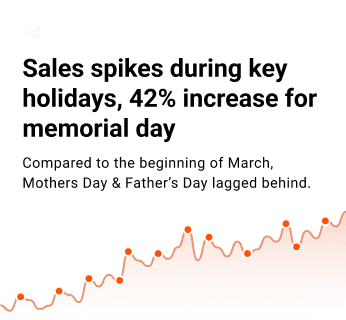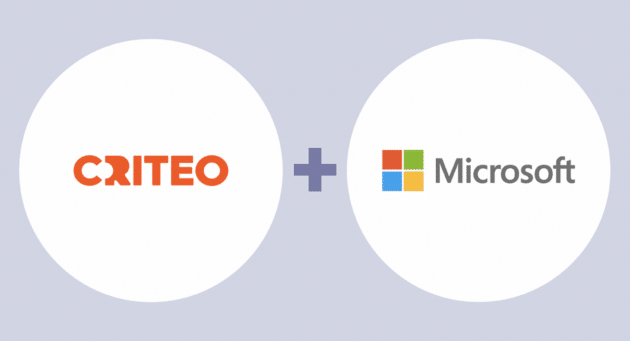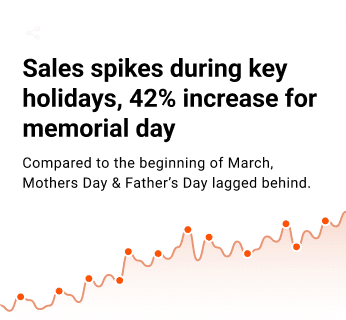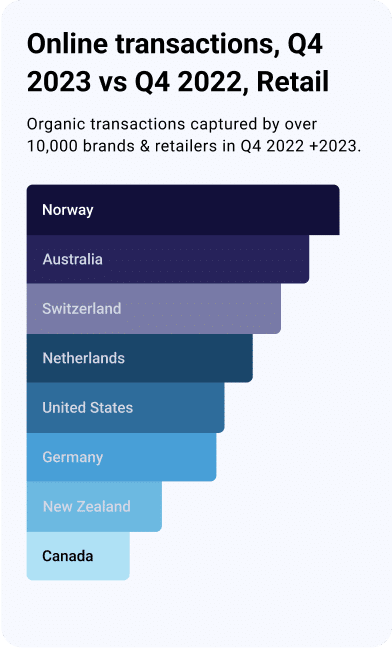Advertising and birdwatching historically don’t have much in common, but these days they’re linked as a result of several industry proposals for the future of personalized advertising being named after our feathered friends. These proposals aim to make advertising better and uphold the implicit value exchange between users, advertisers, publishers, and AdTech companies, as the ecosystem plans for life after third-party cookies.
To be more privacy-focused, Chrome published TURTLEDOVE (Two Uncorrelated Requests, Then Locally-Executed Decision On Victory), proposing how interest group advertising could replace user level advertising in the future. This approach proposes to adapt advertising messages to groups of people with shared interests rather than engaging anonymized individuals with customized messages.
Overall, the objectives of Chrome’s proposal are to maintain positive and privacy-focused advertising experiences for users while also providing transparency into how their browsing behavior impacts the ads they see. Technically, TURTLEDOVE proposes that the browser executes advertising campaigns, carrying out the real-time bidding and ad serving efforts. This proposal also suggests that performance reporting should be tallied at the browser level, then aggregated across browsers and made available after 24 hours.
While the intentions behind Chrome’s proposal are good, the result is not fully adapted to the necessities of online advertising. Although TURTLEDOVE suggests an initial framework to provide more privacy for users, it does not address how to equip advertisers, publishers, and their partners with the control and transparency they need to deliver positive advertising experiences to users.
In May, to address these shortcomings, Criteo published the SPARROW proposal within the World Wide Web Consortium (W3C). SPARROW builds upon TURTLEDOVE’s principles and proposes improvements that would make the suggested approach more aligned with the privacy-focused online experiences users expect, as well as the performance needs of advertisers and publishers.
What is SPARROW?
The SPARROW proposal (Secure Private Advertising Remotely Run On Webserver) is designed to fit within the foundations set by TURTLEDOVE, but aims to enhance Chrome’s proposal by providing more control and transparency while maintaining privacy guarantees for users. These enhancements include:
- Audience discovery and extension: In addition to driving traffic and sales through engaging users based off the interest group they belong to, SPARROW would allow advertisers to create upper-funnel and lookalike campaigns based on those interest groups. These campaigns typically aim at bringing new products and services to the attention of users, and SPARROW proposes a design that makes these strategies possible in a cohort-based privacy approach.
- Data protection and security: In the SPARROW proposal, we recommend having an independent party, or gatekeeper, execute real-time bidding rather than the browser doing so. The gatekeeper protects user group data by ensuring that advertisers, publishers, and AdTech partners cannot access any personal information about users’ interests and browsing behaviors.
As the facilitator of the media buying process, the gatekeeper is responsible for protecting, sharing, and anonymizing user group data before providing it to other advertising players to execute campaigns. Cloud service providers or supply side platforms (SSP) could very well serve in this gatekeeper role given their existing technological infrastructure, ability to host services, and pre-existing integrations with web publishers.
How would SPARROW benefit all members of the ecosystem?
While the purpose of TURTLEDOVE is to protect user privacy, the additional standards within SPARROW protect user privacy while also providing advertisers, publishers, and AdTech partners with the information and tools they need to be successful. This is done by allowing:
- Users to maintain the same browsing experience while increasing privacy protections.
- Advertisers to maintain the ability to execute performance driven advertising while protecting their brand, but expectedly with significantly lower performance than today.
- Publishers to maintain the ability monetize their business and control ad safety.
- AdTech vendors to maintain the ability to provide performance driven advertising and reporting.
In order to restore the advertising value exchange, the needs of all members of the advertising ecosystem should be met. SPARROW enhances TURTLEDOVE’s ability to provide value to all.
How can we ensure the gatekeeper will not sell user data?
Both TURTLEDOVE and SPARROW’s designs involve some form of server-side storage. Several options exist to ensure the gatekeeper does not engage in selling data. One could be to create a dedicated structure with a specific governance. Another option would be to ensure the gatekeepers are subject to a periodic audit from Data Protection Authorities (DPAs). Yet another would be to specify data management practices (e.g. data retention) and public APIs which would allow anyone to ensure data has not been mistreated.
All these options are possible and viable, but we look forward to collaborating with the rest of the industry to build together a satisfactory, lasting, and robust solution to this question.
What would reporting look like with SPARROW?
Thanks to constructive industry-wide feedback, we were able to recently optimize SPARROW’s reporting capabilities to further secure users’ privacy without compromising advertisers’ performance. Specifically, we replaced the log-level reporting feature with three different levels of reporting focused on different advertising use cases, served by the gatekeeper including:
- A low-latency aggregated report for managing campaign spend and billing.
- A personalized, display-level report with privacy-preserving mechanisms for fraud detection, campaign optimization, AB testing and more.
- A report listing all served ad units to help publishers audit for brand safety.
With TURTLEDOVE, browsers wouldn’t return a live data feed on ad auctions, so publishers and ad platforms like Criteo would only receive aggregate reports from the browser on the impressions they won every few hours or even once per day. Such design would result in missed opportunities for advertisers and put them at risk of over-spending and over-exposure, especially in periods of peak activity. It also hinders the ability to stop potential ad fraud in a timely manner.
What are the next steps for the industry?
While there are many unknowns about how online advertising will shape up, we see this natural reflection point as a fantastic opportunity for the industry; a rare occasion to step back and think through how to deliver online experiences that users can engage with and feel completely positive about.
This redesign of online advertising practices for the 21st century will likely extend beyond interest groups — to privacy-focused user level targeting, and contextual targeting. We believe everyone should have the ability to tailor their online experience to match their preferences, and thus believe that the industry should strive to offer all these options to the users and allow them to decide what is best suited to their interests and needs.
Birds flying in groups is a typical sign of changing seasons, and for online advertising the coming two years will no doubt mark the threshold of a new era. The conversation around online identity will continue to evolve, and we will evolve with it as we strive to build a better advertising system. A system that enables brands to promote the result of their work, one that funds a strong and independent publishing industry, and one that allows users to benefit from the rich personalization that only online media can offer — on their own terms.
SPARROW is iterative, thus, we will continue to drive collaboration and encourage other players and partners to share their feedback on SPARROW, or directly contact any member of Criteo’s team should they seek to join us in this endeavor.





















